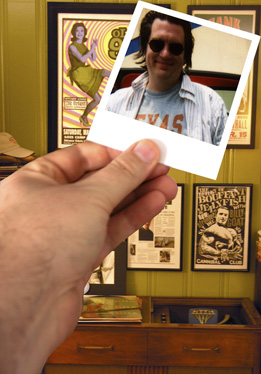Sometimes you'll stumble across something you've forgotten about and a lot of things kind of fall in to place. I was surfing the Times and ran into this article on siblings of autistic children and it reminded me of so may things that I have not wanted to think about:
It wasn’t until the 1980s that many people actually began to analyze sibling relationships, and relationships between disabled and typically developing siblings in particular. With the drive toward deinstitutionalization, more kids with disabilities stayed home, and researchers started investigating what influence that really had on brothers and sisters. At first, they sought to test for the expected negative impacts, interviewing parents and their typically developing children to measure those children’s levels of depression and behavior problems. For the most part, those studies failed to uncover the sorts of difficulties that had been hypothesized. Researchers concluded that although growing up with a developmentally disabled sibling may be challenging, it doesn’t cause any sort of pathology.
Subsequent research suggested that when one child has a disability, siblings may in fact benefit. After all, they receive what amounts to an intensive training in tolerance and empathy. In various studies, parents in such families have characterized their typically developing kids as more caring and mature than average, while college-age siblings have described growing up with someone with a disability in favorable terms. Children with a disabled sister or brother have reported more positive interactions and less conflict with their sibling than kids whose siblings aren’t disabled, though “less conflict” cuts both ways, since sibling fights aren’t necessarily bad. In conversation, researchers will refer to “supersiblings” — children who are especially sensitive and responsible as a result of growing up with someone with a disability. But such children haven’t been studied extensively, and it now seems too simplistic to categorize the experience of having a sibling with a disability as strictly positive or negative. The supersibling notion may have provided a useful corrective to earlier views, says Tamar Heller, head of the department on disability and human development at the University of Illinois-Chicago, but researchers have moved on to address more practical questions: Are support groups useful? How can families best plan for the future? “We’re just starting to have some research that’s really looking at what are the variables that make things better for families,” Heller says.
I think that having an autistic brother has made me more empathetic person. I think that's why I tend to vote Democratic -- I know some people need more help than others and I think the government needs to help keep people from falling between the cracks. I also think I tended toward being a supersibling. I wanted to do well, succeed and not be a problem for my parents. Basically, I wanted to be invisible.
I always knew that someday I would need to take care of my brother. Maybe this is because my parents kept telling me, "When we're gone, you'll need to take care of your brother." But of course, one of the variables in all this is the fact that my mother is batshit crazy and spent a lot of time reminding me how I was reliable and I
couldn't be counted on at all. A lot of this was the result of me trying to have a real life -- college, work, friends and now a family of my own.
I really felt for the little girl in the article, Terah. I've been in that place. A lot of times, the needs of your disabled siblings don't leave a lot of room for your needs. At least in my case, I tried to compensate for all this by making my own life. And I think I succeeded. I am blessed with a wife who is far more understanding of me than I deserve, a daughter who is the most delightful child I have ever known, and more wonderful friends than a person can reasonably expect to have in one lifetime.
So where does that leave me at 37 years old?
I have a wonderful life with a mysterious hole of loneliness in the middle that I somehow can never quite fill up. My brother, thankfully, has an alright life of his own. He works at the same job he's had for years, he has his own apartment, he goes to church, he's able to make his own way in the world. He has a hard time making friends and dating is tough. He'd like to be married and have children, but I can't see that really happening. He's doing better than anyone ever thought he would. But we don't talk that much, maybe a phone call every now and then. Conversation with him isn't easy--subtlety and nuance are beyond him so we don't bare our souls too much. It's sports, weather and vacation plans. My father's gone and I don't speak to my mother at all so there's not much left. Unfortunately, I don't really feel like I have much family at all. My wife and my daughter are the only family I have.
How will my brother get along in the world? OK, I guess. My parents planned well to take care of him financially, so he should be OK. If he needs me, I'm here to help. But otherwise our lives are apart.
Sometimes I wonder what my life would be like I my brother were quote-normal-unquote. But I also wonder what my life would be like if my dad wasn't dead or my mom wasn't so hateful. It's sort of a fool's errand. Anyone can play what-if and imagine their life would somehow be better. But you can't do that. Your life is what you make of it. I've made my own life. That's all there is and that will have to be enough.
















